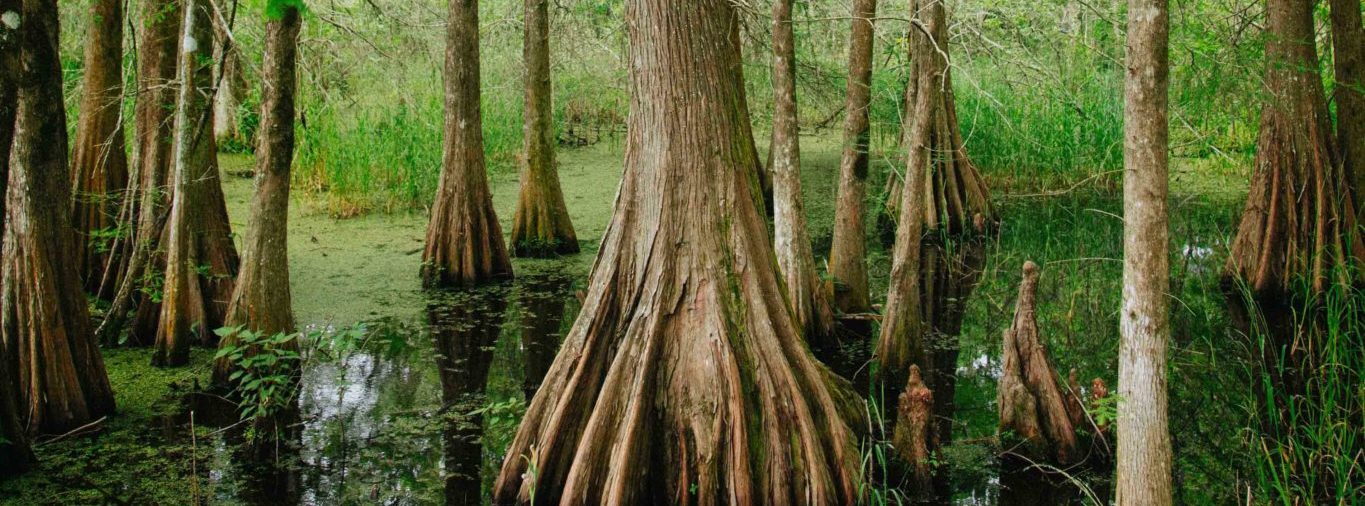
Cypress Mulch: The Good, The Bad, and The Alternatives
Cypress trees are important for our history and future, so it’s important to understand the advantages and disadvantages of cypress mulch when choosing what to include in your landscape. That’s because organic cypress mulch offers many pros and cons, such as it’s cheaper than other mulches but less environmentally friendly. Read on to learn more about this popular mulching option and what we offer at Gaston Mulch and Soil.
Cypress Tree Significance
Cypress mulch derives from bald cypress or pond cypress tree wood. The cypress tree is legendary because of its incredible lifespan — some live more than 2000 years — and its historical significance. Relatively hardy and adaptive to a wide range of soil types, they are most commonly found in the swamps of Alabama, the Carolinas, Florida, Georgia, Louisiana, Alabama, Georgia, and Mississippi.
Origins
Early Southeastern US settlers often used the bald cypress’s rot-resistant wood in the following applications.
- Shingles
- Siding
- Fence posts
- Doors
- Flooring
- Cabinetry
- Boats
- Caskets
Many loggers ventured into the swamps searching for these incredible trees and found they could mill the older, larger trees for heartwood to use as lumber.
Biological Impact
In addition to their construction value, cypresses have critical roles in the wild. Their growth in wetlands makes them effective at trapping and managing pollutants from stormwater runoff. Animals like frogs, toads, and salamanders use bald cypress swamps as breeding grounds, catfish spawn in the submerged hollow logs, and birds like bald eagles and wood ducks nest in their immense canopies and tree trunks.
Cypress Trees Today
Although US cypress trees are listed as a species of minor concern by the International Union for Conservation of Nature, they are not a common tree crop because of their slow growth habits and their preference for swampy environments.
When cypress building product demand was high in the past, cypress mulch was made from sawmill waste wood. With new construction techniques, timber wood demand has declined, but mulch demand has increased significantly over the last several decades. This increase, combined with the reduction of old-growth cypress forests, has led to more harvesting of smaller trees like pond cypress and less mature cypresses that were previously considered too small. Much of the Southeastern US now restricts cypress tree harvesting to protect them for future generations.
Cypress Mulch Pros and Cons
Many of the properties that make cypress wood an effective building product also make cypress mulch a useful landscape product. Cypress mulch is:
- Naturally pest and fungus resistant.
- Long-lasting.
- Pleasing in appearance.
- Aromatic.
- Efficient at reducing moisture evaporation.
- Helpful for insulating the soil from extreme temperatures.
- Successful at suppressing weeds and weed seeds.
- Nourishing for the soil as it breaks down.
But so are most mulches. Cypress mulch looks great but doesn’t look any better than most dyed pine mulches and even has a similar appearance to certain hardwood mulches.
In fact, cypress mulch is more acidic than hardwood mulch, meaning that it can cause problems for plants that don’t prefer acidic soil. It repels water more readily than most pine mulches and is more likely to be washed away in areas with heavy rainfall or flooding. And while some large trees are still harvested for the building industry, and these sawmills sell the mulch byproduct, it has become increasingly difficult to determine the origin of much of the cypress mulch on the market today.
Simulated Cypress Mulch at Gaston Mulch and Soil
At Gaston Mulch and Soil, we keep an available supply of cypress mulch on hand, and we only use sustainable methods to source it. In fact, all our cypress mulch results from waste products from cypress sawmills around the area.
If you want cypress mulch benefits without the drawbacks, consider our simulated cypress mulch. This mulch is double-ground blended hardwood that looks and feels nearly identical to cypress but is easier on your soil, your wallet, and the environment. Contact our pros today if you’d like to learn more about simulated cypress or our other mulch varieties.
